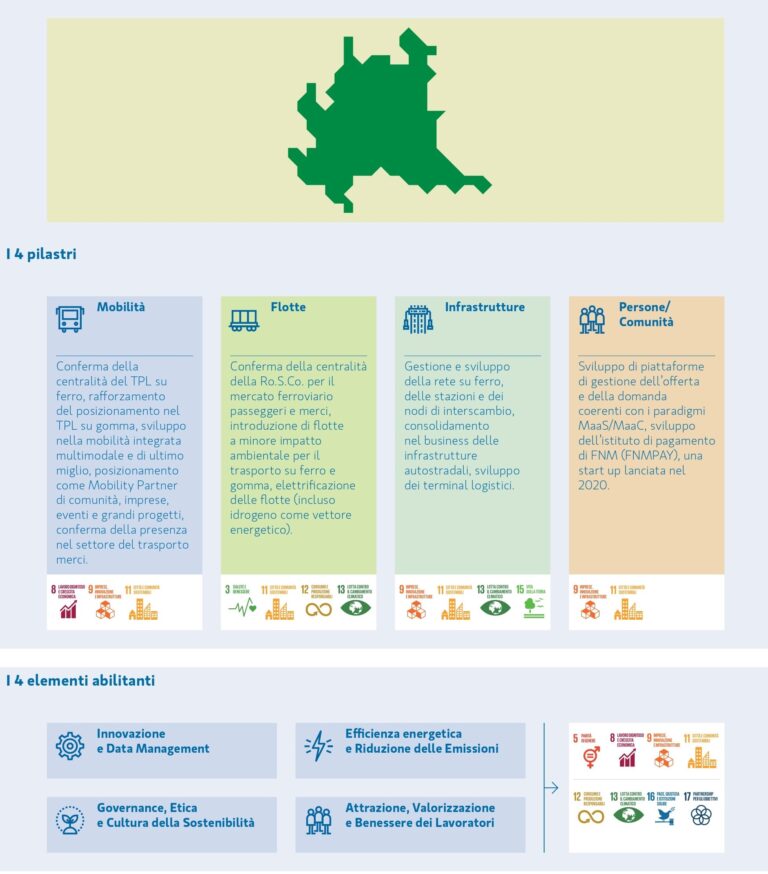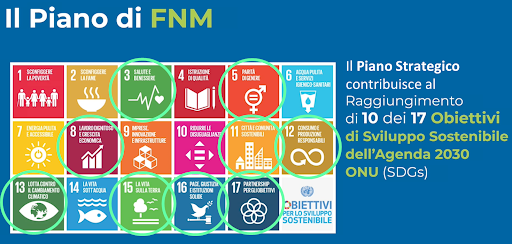2021-2025 strategic plan
On 16 September 2021, the FNM S.p.A. Board of Directors approved the FNM Group’s 2021-2025 Strategic Plan. For the first time the Group’s Plan offers an integrated strategic vision to run the business sustainably, designing the industrial and sustainability dimensions within this context. The Plan is structured around four strategic pillars enabled by four common cross-cutting elements.
STRATEGIC PILLARS
Following the adoption of the FNM Group’s 2017-20 Sustainability Plan (the first in the transport sector), on 16 September 2021 the Board of Directors of FNM S.p.A. approved the FNM Group’s 2021-2025 Strategic Plan. For the first time, the Group Plan offers an integrated strategic vision for the sustainable management of the business, simultaneously designing the industrial dimension and the dimension of sustainability The Plan is built on the basis of four strategic pillars enabled by four transversal common elements.

THE 4 PILLARS
Mobility
Confirmation of LPT in rail central role, strengthening of its positioning in LPT in road, development of its role in integrated multimodal and last mile mobility, positioning as the Mobility Partner of communities, companies, events and major projects, confirmation of its presence in the freight transport sector.
Decent work and economic growth. Business innovation and infrastructure. Sustainable cities and communities
Fleets
Confirmation of the centrality of Ro.S.Co. for the passenger and freight rail market, introduction of fleets with lower environmental impact for rail and road transport, electrification of fleets (including hydrogen as an energy carrier).
Health and well-being, sustainable cities and communities, responsible consumption and production, climate action.
People/ Communities
Development of supply and demand management platforms consistent with MaaS/MaaC paradigms, development of FNM’s payment institution (FNMPAY), a start-up launched in 2020.
Infrastructure
Management and development of the rail network, stations and interchange hubs, consolidation in the motorway infrastructure business, development of logistics terminals.
Business, innovation and infrastructure, – Life on land
THE 4 ENABLING ELEMENTS
- Innovation and Data Management
- Energy efficiency and Emissions reduction
- Governance, ethics and sustainability culture
- Attraction, development and well-being of employees
THE FNM PLAN
The Strategic Plan contributes to the achievement of 10 of the 17 Sustainable Development Goals of the UN 2030 Agenda
